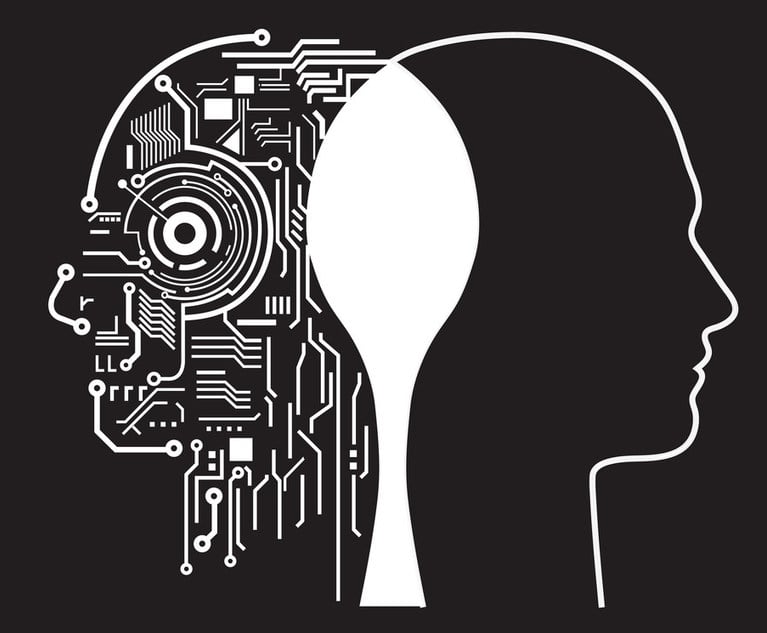
Artificial Wisdom or Automated Folly? Practical Considerations for Arbitration Practitioners to Address the AI Conundrum
Arbitration parties, arbitrators and administering institutions can all benefit from AI so long as its risks and limitations are fully understood and appropriately addressed.
January 27, 2025 at 08:28 AM
9 minute read
The number of ways artificial intelligence (AI) can be leveraged in the arbitration process for time and cost efficiencies is growing daily, along with the scope of challenges AI may present. In this article, we outline some of the uses contemplated by arbitration constituents, highlight potential risks associated with its use, and focus on procedural and legal matters that parties, arbitrators and administering institutions may wish to consider given the new realities that AI presents.

Most of us have already explored AI technology by submitting queries to online AI platforms. Early in the arbitration process, parties can run searches using various AI-powered tools to identify arbitrators with specific attributes or to gather information about a potential arbitrator’s experience. Throughout the process, AI can be used to research cases and legal trends, and, more generally, to gather information that could support a party’s position and arguments.
NOT FOR REPRINT
© 2025 ALM Global, LLC, All Rights Reserved. Request academic re-use from www.copyright.com. All other uses, submit a request to [email protected]. For more information visit Asset & Logo Licensing.
You Might Like
View All
Art of the Settlement: Trump Attorney Reveals Strategy in ABC Lawsuit

Evolving Legal Standards to Combat Disqualification of Arbitrators for Failing to Disclose Conflicts of Interest
8 minute read
Court of Appeals Holds that Arbitration Agreements Can Be Formed Through ‘Clickwrap’ Process
8 minute read
Trending Stories
- 1Divided Eighth Circuit Sides With GE's Timely Removal of Indemnification Action to Federal Court
- 2Former U.S. Dept. of Education Attorney Suspended for Failure to Complete CLE Credits
- 3ArentFox Schiff Adds Global Complex Litigation Partner in Los Angeles
- 4Bittensor Hackers, Accused of Stealing Over $28 Million, Face Federal Lawsuit
- 5In Novel Oil and Gas Feud, 5th Circuit Gives Choice of Arbitration Venue
Who Got The Work
J. Brugh Lower of Gibbons has entered an appearance for industrial equipment supplier Devco Corporation in a pending trademark infringement lawsuit. The suit, accusing the defendant of selling knock-off Graco products, was filed Dec. 18 in New Jersey District Court by Rivkin Radler on behalf of Graco Inc. and Graco Minnesota. The case, assigned to U.S. District Judge Zahid N. Quraishi, is 3:24-cv-11294, Graco Inc. et al v. Devco Corporation.
Who Got The Work
Rebecca Maller-Stein and Kent A. Yalowitz of Arnold & Porter Kaye Scholer have entered their appearances for Hanaco Venture Capital and its executives, Lior Prosor and David Frankel, in a pending securities lawsuit. The action, filed on Dec. 24 in New York Southern District Court by Zell, Aron & Co. on behalf of Goldeneye Advisors, accuses the defendants of negligently and fraudulently managing the plaintiff's $1 million investment. The case, assigned to U.S. District Judge Vernon S. Broderick, is 1:24-cv-09918, Goldeneye Advisors, LLC v. Hanaco Venture Capital, Ltd. et al.
Who Got The Work
Attorneys from A&O Shearman has stepped in as defense counsel for Toronto-Dominion Bank and other defendants in a pending securities class action. The suit, filed Dec. 11 in New York Southern District Court by Bleichmar Fonti & Auld, accuses the defendants of concealing the bank's 'pervasive' deficiencies in regards to its compliance with the Bank Secrecy Act and the quality of its anti-money laundering controls. The case, assigned to U.S. District Judge Arun Subramanian, is 1:24-cv-09445, Gonzalez v. The Toronto-Dominion Bank et al.
Who Got The Work
Crown Castle International, a Pennsylvania company providing shared communications infrastructure, has turned to Luke D. Wolf of Gordon Rees Scully Mansukhani to fend off a pending breach-of-contract lawsuit. The court action, filed Nov. 25 in Michigan Eastern District Court by Hooper Hathaway PC on behalf of The Town Residences LLC, accuses Crown Castle of failing to transfer approximately $30,000 in utility payments from T-Mobile in breach of a roof-top lease and assignment agreement. The case, assigned to U.S. District Judge Susan K. Declercq, is 2:24-cv-13131, The Town Residences LLC v. T-Mobile US, Inc. et al.
Who Got The Work
Wilfred P. Coronato and Daniel M. Schwartz of McCarter & English have stepped in as defense counsel to Electrolux Home Products Inc. in a pending product liability lawsuit. The court action, filed Nov. 26 in New York Eastern District Court by Poulos Lopiccolo PC and Nagel Rice LLP on behalf of David Stern, alleges that the defendant's refrigerators’ drawers and shelving repeatedly break and fall apart within months after purchase. The case, assigned to U.S. District Judge Joan M. Azrack, is 2:24-cv-08204, Stern v. Electrolux Home Products, Inc.
Featured Firms
Law Offices of Gary Martin Hays & Associates, P.C.
(470) 294-1674
Law Offices of Mark E. Salomone
(857) 444-6468
Smith & Hassler
(713) 739-1250






